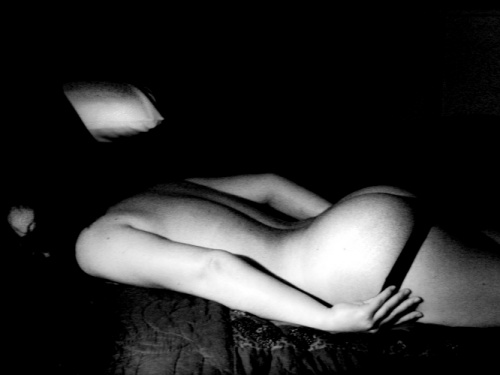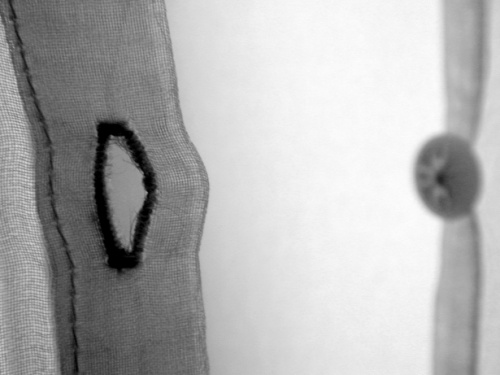From How to Occupy Ourselves by David Howard & Fiona Pardington
Getting There
1
If his eye is silent hers is
a mirror: here there
between
reckoning: his head rests on more than her
surface. Difficult - she thinks impossible -
to live without him within.
This is not to say.
2
Frost on the rotted dinghy, its oars
heavy like the mud that welcomes
ducks on the first day of hunting.
He replaces her eyes' absence with the sky's.
His window does not look but fronts the river.
She was the patron of his faith, of his loss
of faith. He was not looking -
the ducks, the hunters were there
anyway. By noon the frost was gone, he
launched the dinghy like a Victorian
in order to dredge his face from the ripples, then
reassemble a carnivore. Eat.
3
In order to hold the earth better he
turned into barley; in order to
moisten her lips he fermented
in the sun she once denied him.
She thought him out of order.
Hers was a dear eternity,
its span wider than the roots put
down to win this heartless heart.
- That's how he tells it;
hers is the story you'll never hear.
Words like 'dessicate' and 'hate'
ringbark an afternoon of fruit-trees.
4
Storm-drawn, your face against a sunrise.
- That's what he wanted from her,
a portrait rather than a person, a girl
daubed by the morning rather than a woman
worn by the night's desire, its subsidence.
Instead in their orchard he saw gorse; he thought
more of his disappointment than her.
A Mother's Story (for Mahmoud Darwish)
| already the settlers arrive to ruins | |
| when her heart beats | |
| it also measures | while their eyes measure the desert's dark |
| the wheat's ear | |
| the crow's feathers | their chisels are eager for heroes to sculpt |
| the length of dock-root | |
| in Galilee | they settle on headstones |
| the strength of rock-salt | |
| from the Dead Sea. | the dark ripples over the shoulder of the hill |
| she is nameless | like the cry of the mujahedeen |
| but she loves | |
| that underweight son | 'stand by your brother |
| with the lantern | |
| heavy in his left hand | be he oppressor or oppressed' |
| its light cannot neutralize | |
| the dark inside | outside the light |
| the barrel | |
*
So strong is his will that it can produce a simulacrum of patience, prudence and fortitude at those moments when he feels most exposed, fragile and erratic. The stronger his attraction the more extreme his reaction, so the closer he is drawn the further he withdraws. Of course nature does not acknowledge whatever's absent - it is prodigal with species, variations, effects - so any withdrawal is artificial, a perverse tearing of the world's fabric. This is how it appears to the West. Mahmoud knows that if a bird does not believe in trees it will not rest; he believes in the tree that is there yet, ultimately, he hopes to rest in the tree that isn't there.
His Lover

Buttonhole

© David Howard & Fiona Pardington